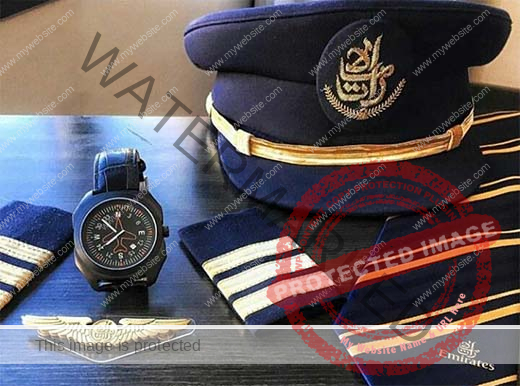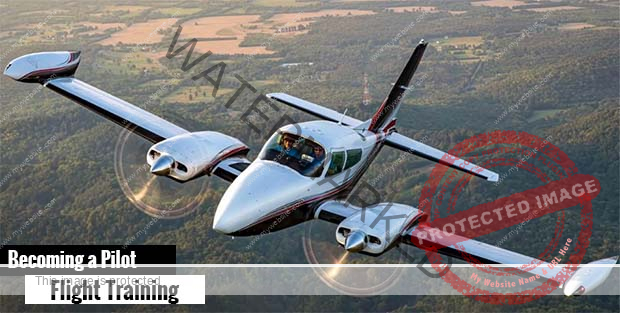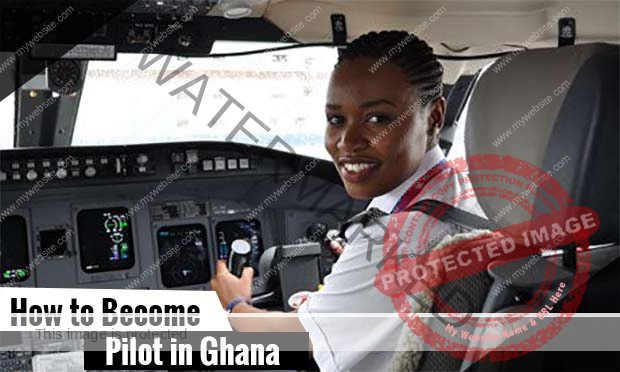Becoming a pilot in Ghana requires a great deal of pilot training, and commitment and is certainly a rewarding career. Although the process can be a rigorous journey but it is worth going through in fulfilling your dream career.
If you are planning to become a professional pilot in Ghana and seeking to know the requirements to pursue your dream aviation career Read On!
Here in this article we at College Reporters have taken the responsibility to help know the requirements and walk you through the necessary process to become a pilot in Ghana – a step-by-step guide by professional pilots recommended for you to take in pursuing your dream of becoming either airline transport pilot, commercial pilot, or private pilot.
Ghana is highly regarded, with a growing number of flight training schools offering quality state-of-the-art facilities and world-class instruction to pursue your dream of becoming a pilot in Ghana.
Why Become Pilot in Ghana
Becoming a pilot in Ghana is an interesting and rewarding aviation career that is beyond your dream and more than your passion.
if you are passionate and planning to pursue your dream career of becoming any of the pilot – private pilot, commercial pilot or airline transport pilot.
The airline companies’ need for pilots is on the increase as many airlines, aviation institutes, and flight schools are established. The services of a professional pilot are demanded by these organizations and institutes to help in managing, flying aircraft and instructing student pilots.
Is Pilot Training in Ghana Worth It
To become a pilot in Ghana, one must meet certain requirements and obtain the necessary qualifications and certifications. However, the pilot training is worth it if you are determined and passionate about flying in the sky and willing to endure the challenges involved.
Beyond the bulky income, being a pilot in Ghana is an exciting and fulfilling career choice. You will have the opportunity to fly across either cities, countries or continents, experiencing the bird’s view of landscapes and knowing the different cultures – if you love tourism and travel, be in the sky in the large human craft bird.

The decision to become a pilot in Ghana is a good choice and ultimately depends on your willingness, and commitment to pursue a pilot career. Except you love becoming pilot in South Africa – another most sought-after training destination to become an airline pilot.
Flight Schools to Attend to Become a Pilot in Ghana
It is important to note that becoming a pilot in Ghana would require you to attend a flight school – not any school but the reputable and best flight schools in the country.
Here are a few flight schools to attend and pursue your dream career.
READ ALSO
Here Are The Steps to Become a Pilot in Ghana
Step 1: Be at Least Age 17
The first step to becoming a pilot in Ghana, you must meet the least age requirement for all pilots to fly solo. In Ghana, to become a pilot, you must be age 18 above to go solo and obtain your Private Pilot Licence
This age must be attained before enrolling into flight school training. You may need to provide valid documentation or proof of age to get enrolled for student pilot training or a private pilot license.
Step 2: Pass Medical Examination
To become a pilot in Ghana, you must obtain a medical certificate from a Civil Aviation Authority (CAA) approved medical examiner. You need to be declared medically fit by a designated aviation medical examiner.
The medical certificate is one of the requirements for undertaking a pilot training in Ghana and is obtained through a series of medical tests such as hearing test, eye examination, x-rays and physical examination.
This certificate need be a Class I or at least a Class II medical certificate and is valid for 2 – 5 years. Acquired medical certificates have to be renewed every two years.
To become a pilot in Ghana, a pilot must be examined to have the necessary mental and physical competence required to be a pilot.
After passing a medical fitness exam and deciding on the type of pilot’s license you would like to obtain, the next step is to choose which flight school is the most suitable for your selected training.
Step 3: Attend Flight School
Becoming a pilot in Ghana requires you to enroll into a flight school and get flight training, in this step to become a pilot in the country – the applicant must identify and get enrolled for flight training with reputable flight training or aviation schools in Ghana, but if you have the financial luxury to attend some of the best aviation schools in South Africa for quality hands-on practice and training with state-of-the-art facilities.
It is important to note that becoming a pilot requires you to enroll in a recognized flight training institute and complete the flying hours required to obtain a pilot license at a certain cost, these fees depend on the selected flight school and pilot training program.
To become a pilot in Ghana, a pilot must attend flight schools, and complete a number of courses: such as flight training, ground school, and simulation course in a flight school in Ghana
READ ALSO
How to Become a Pilot in South AfricaHow To Become a Flight Attendant in South Africa – Everything You Need To Know
Step 4: Take Flight Training
You will need to complete flight training to obtain your pilot’s license. Once you have completed all your training, complete the minimum number of hours – flying aircraft, pass a written examination, you will be offered a pilot license based on your selected flight training
During your flight training to become a pilot in Ghana, you will learn to hands-on practice, pre-flight, post-flight, take-offs and landing at different airports, and fly aircraft at night.
Your flight training at an authorized center uses the FAA syllabus which covers topics such as aerodynamics, navigation, and aircraft systems. Decide on which training you will have to undergo – private pilot license, commercial pilot license, multi-engine rating, airline transport pilot license., instrument rating, night rating.
Step 5: Obtain Private Pilot’s License (PPL)
The Private Pilot License (PPL) allows a pilot to fly an aircraft for recreational purposes during the daytime and in good weather conditions. The process of obtaining a PPL and becoming a pilot in Ghana requires consistent training and dedication.
As a pilot with a private pilot license, you are allowed to fly solo, with passengers, or cargo but without monetary compensation.
To become a private pilot, the Ghana Civil Aviation Authority (GCAA) requires you to hold a valid Class 1 Medical certificate before you undertake any flight training.
The private pilot training comprises a minimum of 40 hours of flight time, including 10 hours of solo flight, written exam and a practical flight test and – you will need about 6 months to obtain a Private Pilot License (PPL).
During your PPL in flight school, you will be trained by experienced and qualified flight instructors in both hands-on practice and classroom knowledge to become a pilot in Ghana.
The requirement to become a pilot in Ghana set by the Ghana Civil Aviation Authority and to earn your Private Pilot License includes and not limited to:
- a minimum of 25 hours dual flight training with flight instructor
- minimum of 15 hours of solo flight training, this include a minimum of 3 hours solo across country navigation flight.
- a 5 hours basic IF simulator training, and
- Practical flight and navigation skills test.
Step 6: Obtain a Commercial Pilot License (CPL)
In this step to becoming a pilot and start receiving monetary compensation for flying, you will need to obtain a commercial pilot license. The license allows you to become a paid professional pilot in Ghana.
Once you have your Private Pilot’s License, the next step is to obtain a Commercial Pilot’s License (CPL). To pursue your career as a commercial pilot in Ghana, you must have a minimum of 200 hours of flight time, and pass written and theoretical examinations.

The practical flight training covers topics such as navigation, instrument flying and flight planning, while the written examination covers instrumentation, navigation, and meteorology.
At this level, in order to fly aircraft in certain weather conditions and fly at night, you will need a certificate in night rating and instrument rating without going further to obtain Airline Transport Pilot’s License.
READ ALSO
5 Best Flight Attendant Schools in Ghana to Enroll | Become Air Hostess
How to Become an Air Hostess in Ghana -What You Need to Know
Step 7: Obtain an Instrument Rating (IR)
Instrument Rating (IR) is the type of rating that enables you to fly the aircraft solely relying on the in-cockpit instrument inside the aircraft. This means you can legally fly in clouds, rain, fog and other circumstances of reduced visibility.
As you progress in becoming a pilot in Ghana, you may also opt to get an instrument rating if you want to also become a flight instructor.
An instrument rating can be obtained along with your private pilot license or commercial pilot license through intensive training focused on flying solely by reference to instruments. An instrument pilot is required by most airline companies, so it is a necessary rating for those aspiring to be an airline or corporate pilot.
Step 8: Get Pilot Job/Employed
An aspiring pilot can fulfil their dream of becoming a pilot in Ghana after securing the pilot license. Once the necessary pilot licenses and ratings have been obtained, you can apply for a job opportunity as an airline pilot.
To get an offer, a pilot must meet the prerequisites to become eligible for pilot employment in Ghana – obtaining a pilot license in Ghana is a crucial, involved process that requires commitment and focus on completing the training
After obtaining your CPL, you can start submitting applications for pilot jobs with airlines in Ghana. You can choose to be a pilot for private companies, commercial airlines or the Ghana Air Force.
A pilot needs to possess a minimum of 500 hours of flight time, a valid medical certificate and pass a few series of exams. In addition to passing exams, a pilot must have the skills to fly in different weather conditions and have a good record of safety.
Then apply for jobs as a pilot with different airlines in Ghana and other countries of choice. The job opportunities for pilots in Ghana are vast and the average salary for pilots is very attractive.
In Africa, pilot demand is on the rise, with many domestic and international airlines extending job offer openings. However, to become a successful pilot in Ghana, you need to have excellent flying skills, teamwork, and communication skills as the job market for airline pilots is competitive and you have to prove yourself a good fit with experience to get employed.
Step 9: Obtain a Multi-Engine Rating (MER)
Another rating you will need in your journey to become a professional pilot in the country is a Multi-Engine Rating.
The Multi-Engine Rating is a pilot rating that allows you to legally fly any aircraft with multiple engines as the pilot-in-command (PIC).
If you are planning to become a pilot for an airline either as a commercial pilot or air transport pilot, the Multi-Engine Rating is a requirement for any aspiring pilot who wants to improve their competitiveness chances in the aviation industry.
To start your career as a pilot in Ghana, the Multi-Engine Rating is required as a commercial airline pilot.
READ ALSO
12 Best Aviation Schools in Nigeria to Attend
15 Best Aviation Schools in South Africa To Attend For Flight Training
Step 10: Obtain a Night Rating
The Night Rating is a certification that allows you to fly aircraft at night exercising visual flight rules (VFR).
if needed, the Night Rating certification can be obtained in the journey to become a pilot, as the Night Rating is non-expiring (it has lifetime validity)
As a pilot, you can fly both single and multi-engine aircraft that are classified as non-high performance during night hours under (VFR)
However, if a pilot wishes to fly at night, another alternative certification is the Instrument Rating – exercising instrument flight rules (IFR)
Step 11: Obtain an Airline Transport Pilot’s License (ATPL)
if you want to fly for airlines as a professional pilot in Ghana, then you will need to obtain an Airline Transport Pilot’s License (ATPL) if you have the financial budget. The license is the highest level of aircraft pilot license you can acquire and allows you to fly aircraft as a pilot in command for airlines on scheduled aircraft.
The Airline Transport Pilot License requires an extensive amount of flight training and experience. If you want to become an airline pilot in Ghana, obtaining your ATPL requires a minimum of 1500 hours of flight time
It is important to note that becoming a pilot at this level is the most rewarding in the career with a bulky income, however, your flight training cost to obtain ATPL can be expensive depending on the selected flight school, country of training and a few other factors.
Becoming a pilot in Ghana by obtaining your Airline Transport Pilot License requires you to meet the following:
Holds a Class 1 Medical Certificate.
Completed a minimum of 1500 hours of flight time.
Step 12: Get Type Rating
Becoming a pilot requires significant financial expenses, as flight training and obtaining a license can be expensive.
If you planning to go further in the pilot career, Type Rating is another training that needs to be obtained to fly specific aircraft, such as Airbus A323 and Boeing 737 is performed through a training program offered by aircraft manufacturer and their third-party training organization.
There are two phases of type rating: pre and post-type rating, that a pilot undergoes to obtain type rating certification to fly a specific aircraft in the airline.
Frequently Asked Questions
What are the Age Requirements to Become Pilot in Ghana
In order to become a pilot in Ghana, applicants must be at least 18 years of age to begin flight training, In addition to the age requirement, aspiring pilots also need to have valid identification and pass English language proficiency tests, and medical exams.
What Educational Qualification Do I Need to Become Pilot in Ghana
To start your pilot training to become a pilot in the country, you will need to have completed secondary high school education: ideally, get a pass in Mathematics, English Language, Physics, and Geography at GCSE/WASSCE.
This means the minimum qualification is a WASSCE certification, however, it depends on the selected flight program you want to enroll in, as some flight/aviation training requires a higher level of education – gcaa.com.gh.
How Long is Pilot Training in Ghana
How long does it take to complete pilot training in Ghana? Completing your training and becoming a pilot in Ghana varies and would depend upon your selected flight training program (pilot license) and flight school in Ghana.
A Private Pilot License (PPL) would require about 6 months to complete training and a Commercial Pilot License would require you complete training within 2 to 3 years. According to Aviation Fly to get a Commercial Pilot License (CPL) in Ghana, you will need an average of 1 to 2 years (in some extreme cases 3 years).
Additional factors that could affect your training duration to become a pilot are; the availability of aircraft, weather conditions, your learning pace etc.
What Type of Pilot License Can I Obtain in Ghana
Depending on your goal choice, selected training program, experience and school, There are different types of licenses provided – Private Pilot License, PPL), Commercial Pilot License (CPL), and Airline Transport Pilot License after your training. Other forms of license and certification are multi-engine, night rating, instrument rating, type rating
Each license with it’s specific requirements and can be obtained by your commitment and successful completion of training.
How Many Fligth Hours are Required to Become a Pilot in Ghana
Becoming a pilot would take a lot of dedication and time on your part. For a private pilot, it usually takes 45 hours of flight time to obtain the Private Pilot License.
A Commercial Pilot License would take a minimum of 200 hours of flight time with a pass in exams to obtain a pilot license in Ghana.
An Airline Transport Pilot License would take the completion of a minimum of 1500 hours of flight time with a pass in test to become a pilot in Ghana.
How Much Does Pilot Training Cost?
The journey to becoming a pilot in Ghana can be finance demanding, as pilot training costs up to $58,995 when you are starting with a private pilot certificate or $75,995 when you have zero experience – yen.com.ng
But for individuals who want to be commercial pilots, you may up to $150,255 to complete your training, including instrument rating, and night rating. This cost varies based on selected flight schools.
Conclusion
To become an airline pilot, you will need lots of commitment, dedication to training and enough finance to complete pilot training to become a pilot in Ghana.
Now you know what is required to become a professional pilot in the country, are you an aspiring pilot or an airline pilot? Share your thoughts on how to become a pilot in the comment section.
Watch Video: How to Become a Pilot in Ghana

Source:collegereporters.com
Reference
aviationfly.com
asetena.com
ghstudents.com
